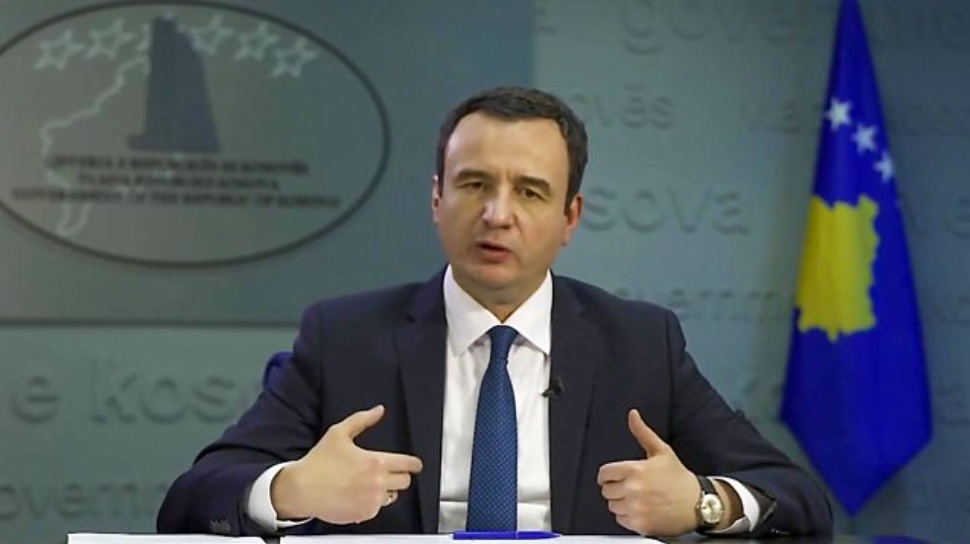
Kosovo Prime Minister Albin Kurti could be set to meet Serbian President Aleksander Vucic in Paris on Thursday amid simmering tensions and various plans which all seek to normalise relations and give crucial progress to the situation between the two countries.
Kurti is set to take part in the Peace Forum in the French capital at the invitation of President Emmanuel Macron and said a meeting could be on the cards.
“In addition to the work and dinner during this prestigious forum, there may also be a trilateral meeting with the President of Serbia, who has also been invited there. I will have my six-member team from the prime minister’s office with me,” Kurti said.
He added he is ready for dialogue and the complete normalisation of relations between Kosovo and Serbia, with mutual recognition at the centre. Kurti said there are two proposals on the table, one presented in the summer and the Franco-German proposal, backed by the West.
“Principled dialogue with others, the rule of law equally for everyone, and peace and security in the entire territory go together”, said Kurti.
Meanwhile, details of a three-point plan created by the Quint countries to help relieve tensions and normalise relations between Kosovo and Serbia were revealed to Albanian media on Wednesday.
This is one of several plans with Western partners to end decades of discontent between the two countries following the 1998-1999 war and Kosovo’s 2008 declaration of independence which Serbia refuses to recognise.
The three-point plan put forward by the US, EU, Italy, Germany, France and UK foresees a commitment to the Franco-German proposal, followed by the formation of the Association of Serb Municipalities and postponement of the license plate rule.
“The second point is the problematic point for both sides. The problem lies in the second point, as Serbia requires the association in advance,” reported journalist Lirim Mehmetaj for Euronews Albania.
Tensions escalated after Kosovo started gradually implementing a new rule which required all car owners in the country to use plates issued by the Pristina government.
This will impact some 10,000 vehicles in the Serb-majority north, which still use Serb plates issued by Belgrade in the 1990s. Pristina wanted to roll out the change in June, but it was postponed until 31 October amid international pressure.
Then, following the foreign intervention, Kosovo’s Prime Minister Albin Kurti announced it would be rolled out gradually, starting with warnings, then fines, and then the prohibition of such plates entirely by mid-April 2023.
The news sparked outrage and protests among local Serbs and the mass resignation of Serb representatives in the police, judiciary, and other institutions.
As for the Association of Serb Municipalities, Belgrade wants an administrative structure alongside the Pristina government, which Kosovo’s Constitutional Court said is not allowed. Instead, Kosovo said an association could form, but it should be like an NGO with no executive powers.
The Franco-German proposal has been hinted at in the media for over a month, but EURACTIV published the latest draft on Wednesday. It mainly focuses on establishing a diplomatic presence in each country and paves the way for both to join the EU.

